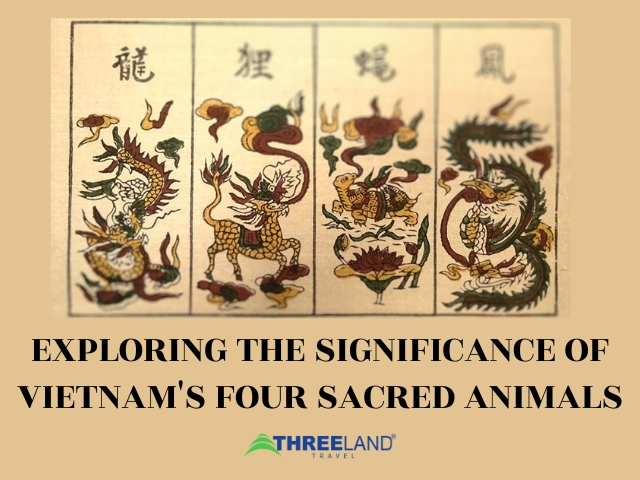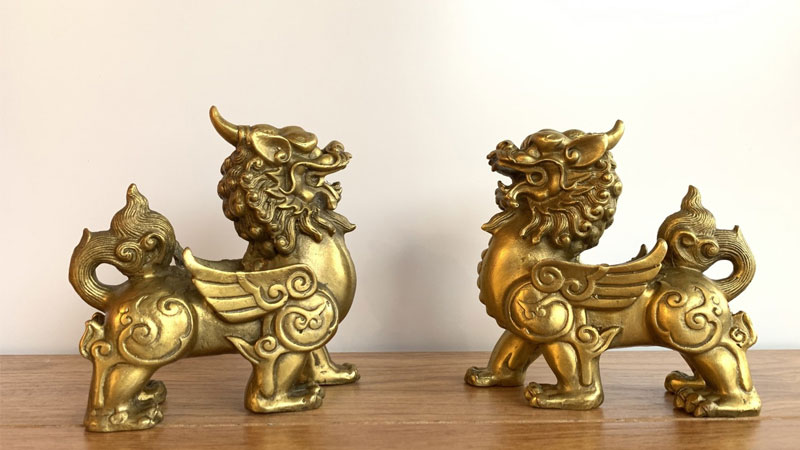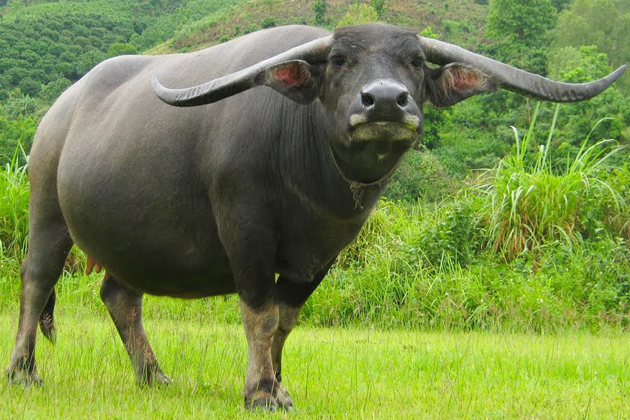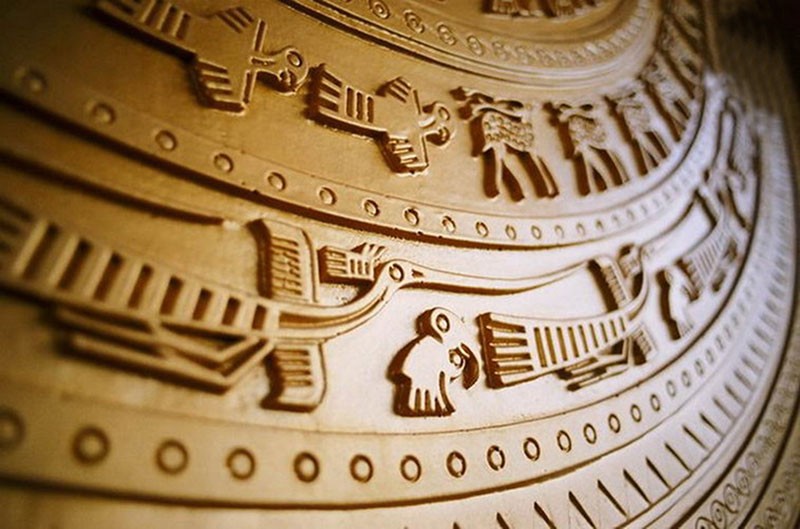The best way to learn about them is to book Vietnam tours and hear the tales from the local people. Also, we have provided every detail about those holy animals in this blog. Read further to know more.
TABLE OF CONTENTS
1
What are the four sacred animals of Vietnam?
The dragon
The tortoise
Unicorns
Phoenix
2
What is Vietnam's traditional animal?
3
What is a Vietnamese mythical bird?
Animism and the belief in holy, mythological creatures have crept profoundly into Vietnamese society throughout its history, as it has in other nearby nations, particularly China.

Vietnamese people revere not only the gods, ancestors, and godless in Vietnamese culture but also the four holy animals called "Tứ Linh" or "Tứ Thánh Thú." Each one symbolizes a distinct symbol and has a distinct meaning.
The best way to learn about them is to book Vietnam tours and hear the tales from the local people. Also, we have provided every detail about those holy animals in this blog. Read further to know more.
What are the four sacred animals of Vietnam?
The dragon
Dragons can be seen as architectural embellishments in Royal Palaces, pagodas, temples, and tombs. The Vietnamese dragon appears slimmer and more flowing than dragons in other Asian countries. The S-shaped curves are essential.

A dragon in a pagoda or palace always has a broad mouth grasping a jade, its head up, a flame-like crest, and its body flying together in one movement, forming a close-fitting construction. The dragon's appearance has evolved over time. When looking at dragon motifs on historical artifacts or architectural components, one may deduce which dynasty the things belong to.
You will hear on your Vietnam tours that the dragon represents humanity's desire for strength and independence in order to live a better life.
The tortoise
The tortoise ("Quy" - or "Rua") signifies both Heaven and Earth. Its round and convex shell depicts the vault of heaven, while the square plaque on its bottom portrays the Earth's surface.
The tortoise represents longevity and perfection and is commonly shown with a coral branch in its mouth, a crane on its back, and a box with the sacred book of "Lac Thu" put behind its back.
The crane atop the tortoise's back is a sign of longevity and can be seen predominantly in temples dedicated to emperors, Confucius, and local spirits.
The tortoise is said to live ten thousand years, and the crane one thousand; so, the presence of this emblem indicates, "May you be remembered for a thousand years, and your cult last for ten thousand years."
Unicorns
The Kỳ lân is a strange mash-up of animals that is often interpreted as a "unicorn." According to some scholars, it combines features of a buffalo, horse, and dragon. It has been dubbed as a "lion-horse" by some. Others claim it has an eagle's eyes, a deer's feet and horns, a crocodile's mouth, a lion's snout, and a horse's body. Everyone agrees that K lân are trustworthy, serene, and kind, which is why they protect temples, pagodas, and palaces.
Two bronze Kỳ lân sculptures stand in the corners of the grand court in front of the Palace of Supreme Harmony in Hu's old Royal Citadel. These sculptures acted as a reminder to court officials to be on their best behavior. You can include this palace in your tour package for Vietnam.

During the Lunar New Year and Mid-Autumn Festivals, unicorn dance troupes go to the streets, which is one of the greatest ways to recognize Unicorn's enduring importance.
Phoenix
The phoenix represents the empress. According to Vietnamese tradition, the phoenix has the neck of a snake, the back of a tortoise, the breast of a swallow, and the tail of a fish.
The phoenix's song contains all five notes of the pentatonic musical scale, and its feathers are composed of the five primary colors: black, red, white, green, and yellow. This legendary bird represents grace, morality, grandeur, and pride.
According to legend, the phoenix torched its nest and rose from the ashes days later. Hence, it represents regeneration, rebirth, and survival. It generally hides itself during times of hardship and only appears during times of quiet and prosperity. Therefore, it also means peace.
What is Vietnam's traditional animal?
Vietnam's traditional symbol is the buffalo, which represents happiness, courage, and fortune. Buffalos are also incredibly essential in Vietnamese agriculture, as they are a farmer's most prized property and are revered as a part of the family.

Few people realize that the buffalo also played an important role in the triumph of Vietnam's struggle against foreign invaders. They were employed not just to transport loads for farmers but also to draw supply carts for soldiers throughout the war. Buffalos were an "undercover" mode of transportation, able to cross rivers and bridges, walk over deteriorating roads, and climb steep slopes. Book your package with a Vietnam travel agency and hear these tales from locals for the best experience.
What is a Vietnamese mythical bird?
Chim Lac, Vietnam's mythological bird, has a long history rooted in both factual and mythical narratives. It is said to have its origins in Vietnamese creation myths, and it has played an essential part in building the nation's cultural fabric.

Chim Lac's history can be traced back to ancient Vietnamese culture. The bird is thought to have been treasured as a holy species by early Vietnamese tribes, symbolizing both grace and might.
Chim Lac is also connected with other mythological animals in Vietnamese culture, adding to its significance. One such relationship is with the dragon, which in Vietnamese culture signifies wisdom, strength, and good fortune. The dragon and Chim Lac represent the perfect balance of water and air, ground and sky.
The bottom line!
Are you intrigued by these folklore? Book your trip with Threeland Travel today and let these mythological animals guide you to the heart of Vietnam's diverse heritage.
If you want to discover more about Vietnam's history, our rich culture, gorgeous antique buildings, and tasty dishes, book your tour with us, the best Vietnam travel agency!










